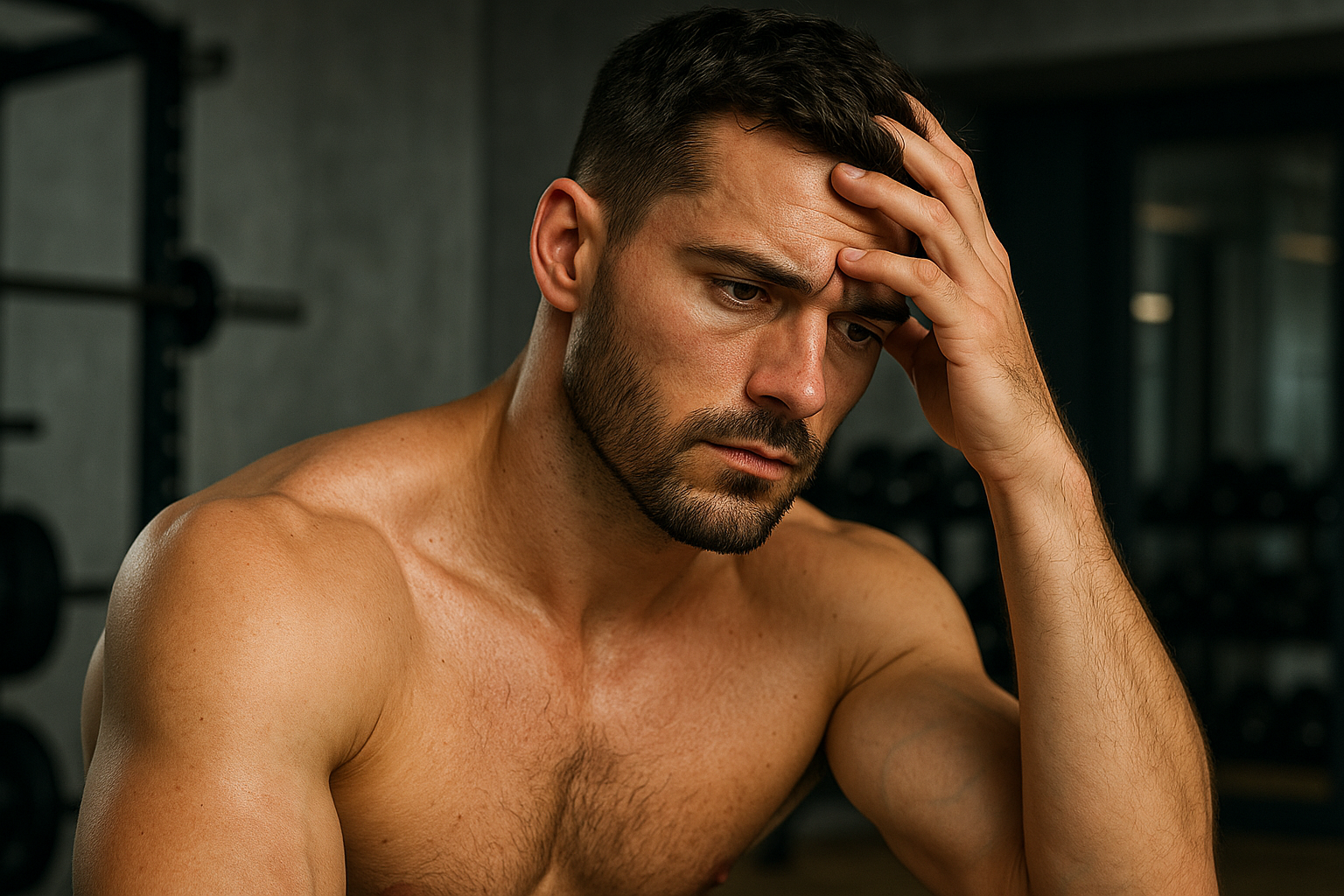When Fitness Doesn’t Equal Sexual Health
It’s easy to assume that erectile dysfunction (ED) only affects men who are older, sedentary, or unhealthy. But in reality, even men who are physically fit, lean, and athletic can struggle with ED — and often for reasons that are surprising and overlooked. If you’re active, health-conscious, and still experiencing sexual performance issues, this article will help you understand the possible causes and what steps to take toward recovery.
ED Is Not Just About Physical Strength
Erections rely on vascular health, hormone balance, nervous system function, and emotional well-being. While physical activity supports many of these systems, it doesn’t make you immune to problems. In fact, certain habits common among athletes and fitness enthusiasts can actually contribute to erectile issues — especially when training is excessive, nutrition is imbalanced, or stress is high.
Possible Causes of ED in Fit Men
Overtraining and Low Testosterone
Training too hard and not resting enough can lead to overtraining syndrome, a state where the body is under constant stress and fails to recover. One of the side effects is reduced testosterone, which leads to decreased libido and weaker erections. Symptoms of overtraining include fatigue, mood swings, insomnia, loss of motivation, and frequent illness. Pushing your body beyond its limits without proper recovery can impair sexual function.
Low Body Fat and Hormonal Disruption
While having a lean physique is generally healthy, extremely low levels of body fat (under 6–8%) can disrupt hormone production. Testosterone is synthesized from cholesterol, and when fat levels drop too low, testosterone can plummet. This is especially common in competitive bodybuilders or endurance athletes. Signs of low testosterone include low libido, reduced strength, mood changes, and erectile difficulties.
Use of Performance-Enhancing Substances
Some athletes use steroids, prohormones, or SARMs (selective androgen receptor modulators) to gain muscle or enhance performance. These substances can suppress natural testosterone production, especially after cycles end. Post-cycle hormonal crashes can lead to ED, infertility, and long-term hormonal imbalances. Even “legal” supplements can contain hidden ingredients that disrupt the endocrine system.
Cycling and Perineal Pressure
Frequent long-distance cycling can put prolonged pressure on the perineum — the area between the scrotum and anus where nerves and blood vessels for erections run. Over time, this pressure may reduce blood flow or cause nerve irritation, especially with poor seat design. If you’re a cyclist, choose ergonomic saddles, change your riding position regularly, and take breaks on long rides.
Psychological Stress and Performance Anxiety
Many athletes live with high expectations and mental pressure to perform — not just in sport, but also in sex. This mindset can create performance anxiety, especially in men who are used to being in control. Anxiety triggers a fight-or-flight response, which restricts blood flow and interferes with arousal. Even with a healthy body, the brain can block an erection if stress levels are high.
Restrictive Dieting and Nutrient Deficiencies
Intense training often comes with strict dieting. If your diet lacks key nutrients like zinc, magnesium, vitamin D, or healthy fats, your testosterone levels may suffer. Low-carb or extremely low-fat diets can also disrupt hormone production. Eating too little overall reduces energy availability, which affects both libido and erection quality.
Sleep Deprivation
Some fit men sacrifice sleep to train more or manage busy schedules. However, poor sleep reduces testosterone, increases cortisol (a stress hormone), and interferes with recovery. Consistently getting less than 6–7 hours of quality sleep per night increases your risk of ED, no matter how strong your body is.
When ED Happens Despite Being Fit
If you’re active, eat well, and still struggle with erections, don’t ignore the signs. ED can signal that something internal — hormonal, neurological, or psychological — needs attention. And just because you look healthy doesn’t mean your body is functioning at its best. Consider tracking your symptoms, stress levels, sleep, and libido. Then work with a professional to evaluate deeper causes.
What You Can Do to Recover
Focus on Recovery as Much as Training
Add rest days, use deload weeks, and incorporate light movement or stretching instead of constant intensity. Recovery allows hormones to stabilize and prevents long-term burnout.
Get Your Hormones Checked
A blood test to measure total and free testosterone, LH, FSH, estradiol, and cortisol can provide insight into your hormonal balance. If levels are off, lifestyle changes or treatment can help restore equilibrium.
Optimize Nutrition
Make sure your diet includes enough healthy fats (avocados, nuts, olive oil), adequate calories, and key micronutrients like zinc, selenium, vitamin D, and magnesium. Consider working with a sports nutritionist to adjust your meal plan for hormonal support.
Reduce Stress and Reframe Pressure
High-functioning individuals often live with invisible pressure. Mindfulness, meditation, or therapy can help manage performance anxiety and reconnect with arousal as a natural response, not a task to complete.
Evaluate Your Supplement Use
Check your pre-workouts, fat burners, or hormonal boosters for hidden stimulants or compounds that may interfere with testosterone. Natural isn’t always safe — be cautious and choose reputable brands.
Improve Sleep Quality
Aim for 7–9 hours of uninterrupted sleep per night. Make sleep a priority by setting a consistent schedule, limiting screens before bed, and creating a dark, quiet sleep environment.
Fit on the Outside, Balanced on the Inside
Erectile dysfunction doesn’t discriminate based on how much you can lift or how far you can run. Being physically fit doesn’t guarantee hormonal, neurological, or emotional balance. ED in athletes and fit men is real, valid, and treatable. By listening to your body, adjusting your training habits, and addressing hidden stressors, you can rebuild sexual performance — and emerge stronger, inside and out.
